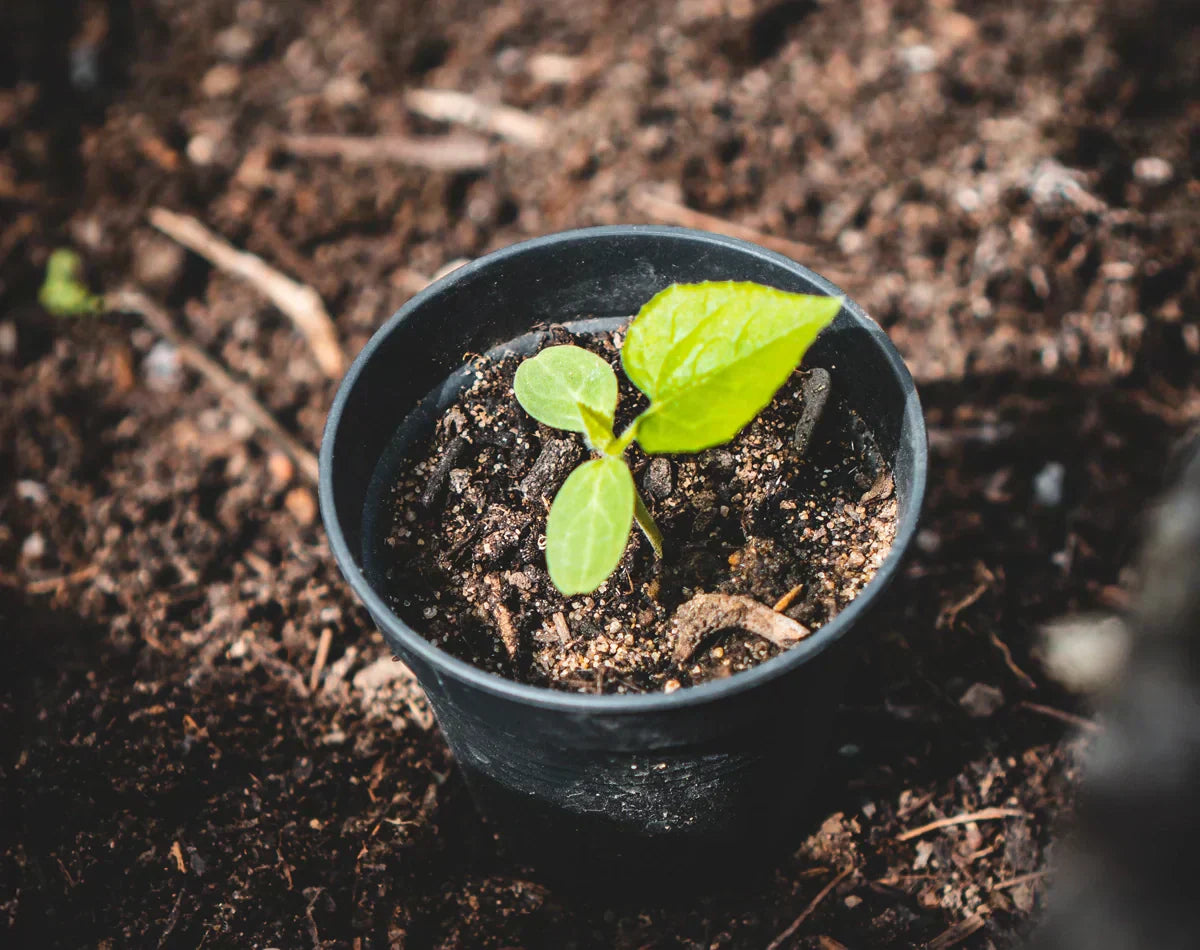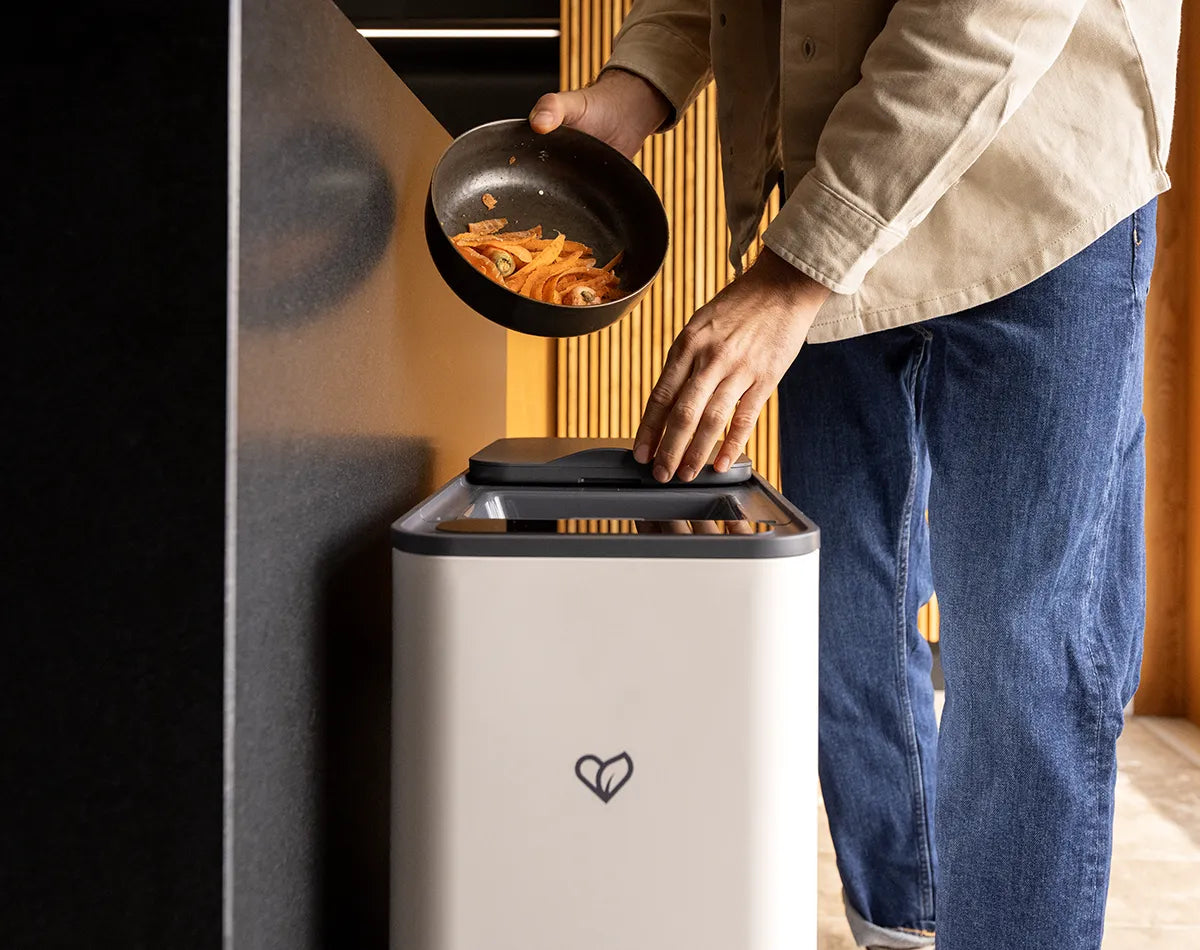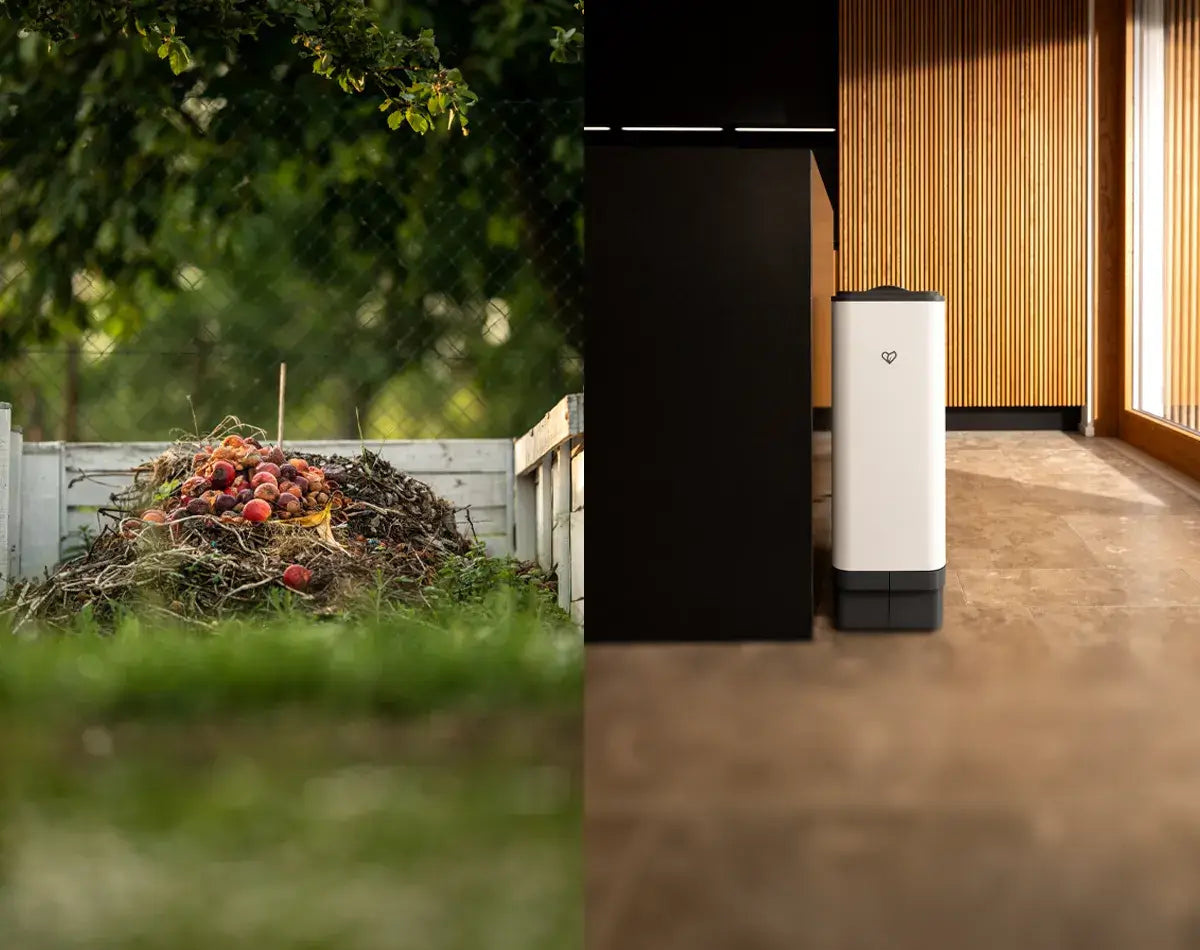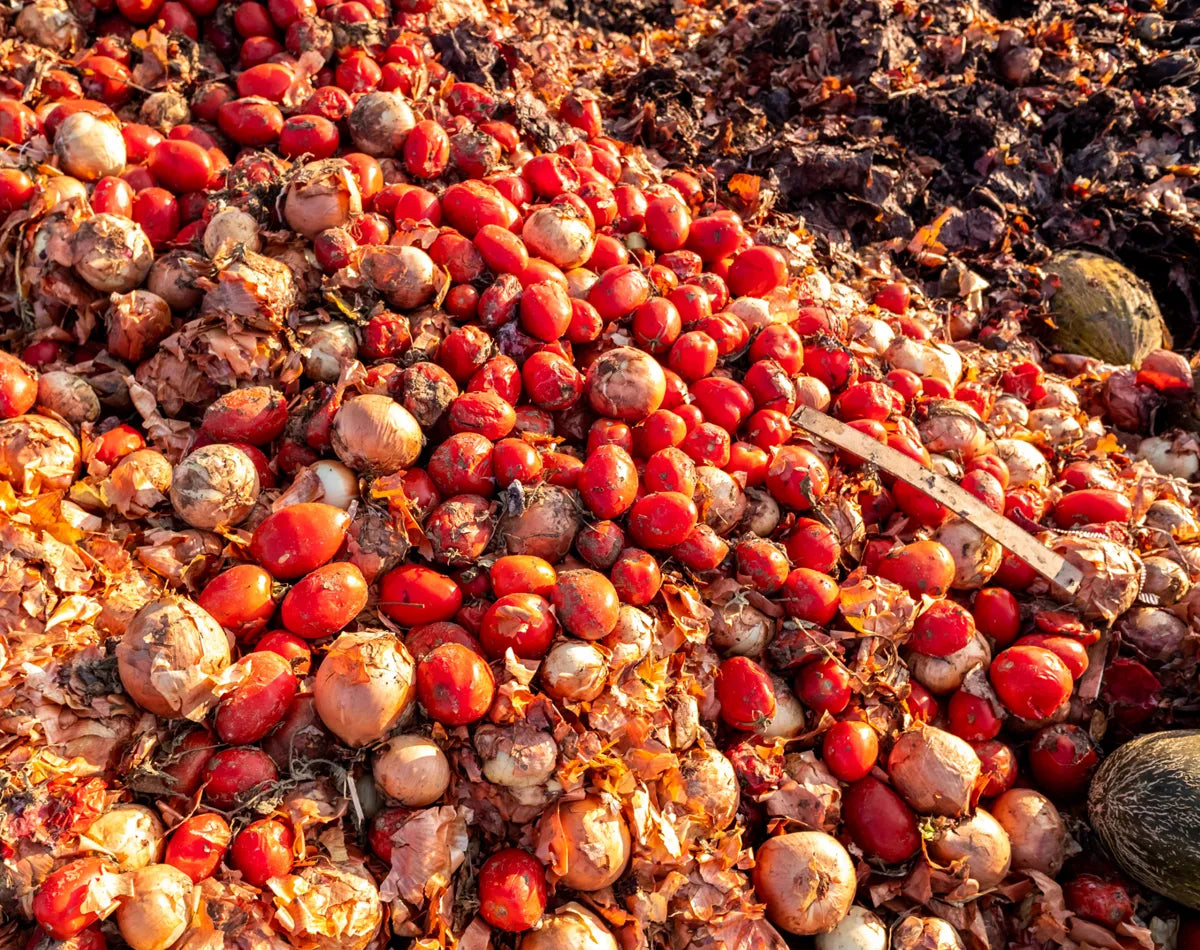Open the lid, put in organic waste, and after three hours fresh compost comes out? Unfortunately, it's not that easy. Today we'll share with you why it takes a little more to make healthy and nutrient-rich compost for your plants at home.
There are currently many devices that promise you fresh compost in a very short time. Please be critical in your own way and question the process. Composting is a science in itself. Nature actually needs several weeks to do this. Fresh compost is a masterpiece of nature - because everything in it is perfectly coordinated: moisture, temperature, pH value and nutrients.
As far as we know, such a process is not possible within four or five hours. Moisture is one of the most important things for composting - however, if organic waste is heated briefly and quickly, it is completely removed from the organic waste. However, this is how many of these devices work. The microorganisms are then left high and dry, in the truest sense of the word, and are unable to continue processing your organic waste. The composting process cannot even begin. The 48 hours that soilkind needs are currently the shortest time frame to produce real, fresh and natural compost without adding any more microorganisms.
But what exactly is composting?
Roughly speaking, compost is the end product of a composting process. This happens all the time in nature. In the forest, on meadows, in fields - everywhere. It means that organic matter, for example the remains of your apple, is processed by microorganisms. These microorganisms are naturally found on all foods. They are able to break down organic matter into its basic building blocks and convert it into a mineralized form, which is very important for strong plant growth. However, it takes a lot of time to transform old into fresh new so that plants can feed on it.
There are different stages during the composting process. In the early stages of composting, the organic starting material was broken down at the molecular level and converted into new nutrient-rich compounds. In a late phase of the composting process, these nutrient-rich compounds were further mineralized. Stable, inorganic substances are created that promote plant growth. This process usually takes several weeks. In a garden compost heap, the biological process can only take place in the middle of the heap because that is the only place where the heat is sufficiently high. This is why the material in the garden must be moved regularly.
At soilkind, we have combined this natural process with innovative technology. The renowned Fraunhofer Institute supported us in this. Thanks to our technology, the composting process described above no longer takes several weeks, but only 48 hours. soilkind accelerates the reproduction and metabolism of the microorganisms through intelligent control and sensors, so that composting is possible within this short time.
Compost as hygienic as never before
To prevent potentially pathogenic germs from entering the compost and multiplying, the compost must be heated to over 60°C for several days during or at the end of the process. We ensure this hygienization with an automatic process step and even accelerate it by heating the biomass to around 100°C for 3 hours.
Good things take time. So if you come across kitchen composters that promise you fresh compost within a few hours – read and ask. How does their composting system work? How do they retain moisture in the compost? And what happens in those few hours?
We think it's great that so many smart people are looking into the topic of composting. Because the more kitchen waste we turn into compost in a sustainable way, the less organic waste we produce. Make compost, not waste. But if we do, then make it real, hygienic compost that is safe and well tolerated by our plants.





